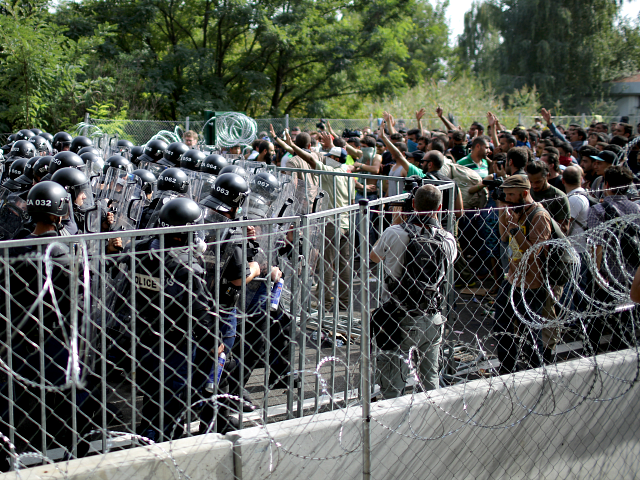The Hungarian government’s decision to rapidly construct strong border fences along their frontiers has had a positive financial effect, achieving substantial savings on the cost of illegal immigration.
Zoltán Kovács, official spokesman for Prime Minister Viktor Orbán, told Hungarian media last week that “the monies spent on border protection are very obviously being recouped”.
Speaking to Breitbart London, the Hungarian government’s International Communications Office explained:
“The Hungarian state spends a total of 5,505 forints on the daily care of each illegal immigrant. To put things in comparison, the minimum wage in Hungary is currently 127,500 forints/month, which equals to 4,250 forints/day.”
This adds up to an annual cost of some 2,009,325 forints per illegal migrant, per year.
Frontex, the European Border and Coast Guard Agency, recently reported that the introduction of “technical barriers” to illegal migration on the Hungarian/Serbian border slashed crossings via that route from 200,000 in 2015 to 25,000 in 2016 – a massive theoretical saving.
The International Communications Office breaks down the costs associated with the care of asylum applicants as follows:
People who have requested recognition for asylum are eligible for the following services and allowances, depending on their level of need and individual situation:
a) within the framework of the material requirements of reception:
– accommodation and care at a receiving institution
– travel discounts
– the covering of the costs of public burial for asylum-seekers;
b) medical care;
c) the reimbursement of education/schooling expenses;
d) within the framework of financial support:
– funding to enable them to permanently leave the country.
Costs vary between countries: Freedom of Information responses obtained by the Daily Express in 2015 indicated that providing asylum seekers with bed and board in the United Kingdom cost at least £726,027 a day in 2013/14.
In Germany the cost of supporting migrants has been even more dramatic, hitting 30 billion euros in 2016. Indeed, it was the economic activity associated with public spending on migrants which allowed Germany to overtake the UK as the fastest-growing G7 economy of last year.
It is not only government which bears the cost of mass immigration, however. Research by the Center for Immigration studies in the U.S. indicates that mass immigration cost $405 billion in wage losses for native-born workers, falling disproportionately on the so-called working poor.

COMMENTS
Please let us know if you're having issues with commenting.